Never Store These Foods In Your Fridge

Refrigerators—the plug-in kind, as opposed to the literal iceboxes of olden days—have been a staple in most American homes since the 1930s. Over many decades since, the idea that everything stays fresher for longer in the fridge has become a common assumption. And while it's true that keeping your groceries cool prevents certain foods from wilting, spoiling, or making you sick from not-so-yummy microbial growth, it might surprise you to learn that some foods should not be refrigerated. While tossing them in there is typically safe, you'll experience faster rot, or a deterioration in quality that just isn't worth it. For starters, let's settle this right now: Bread does not belong in the fridge. In other cases, they're simply shelf-stable enough to sit at room temperature, which makes them prime candidates for relocation into your pantry.
Are you making the following food storage slip-ups? Below is a list of 29 foods you shouldn't keep in the refrigerator, according to the authorities on food storage (pro tip: the searchable FoodKeeper database, developed by the USDA's Food Safety and Inspection Service, offers a wealth of info). Clearing out these condiments, fruits, and more will free up some valuable shelf space, and your appliance can chill what actually does belong in there more effectively.
Unripe Avocados
Avocados will achieve peak ripeness quicker when stored at room temperature for several days.

Basil
Basil is best left at room temperature with the stems submerged in water—that'll keep the leaves from turning soggy and brown in the refrigerator.

Cucumbers
You can (and likely have) stored cucumbers in the fridge. But you also might have observed something called "chilling injury," which causes water-soaked spots, shriveling, and yellowing after three or so days. If you do choose to refrigerate cukes, it's best to wrap them in plastic to minimize the moisture—and eat them ASAP in a salad or fresh raita.
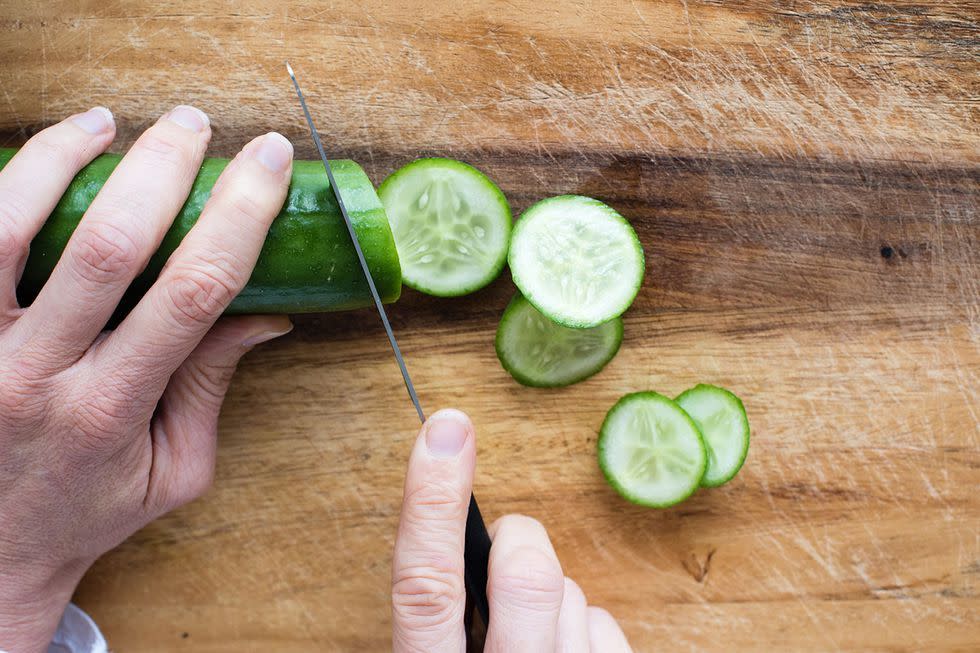
Onions
Ever notice your onions getting soft and moldy in the fridge? It's caused by moisture. While you can refrigerate cut onions in a sealed container for two to three days, store whole onions somewhere cool and dry (but not in a plastic bag), away from potatoes.
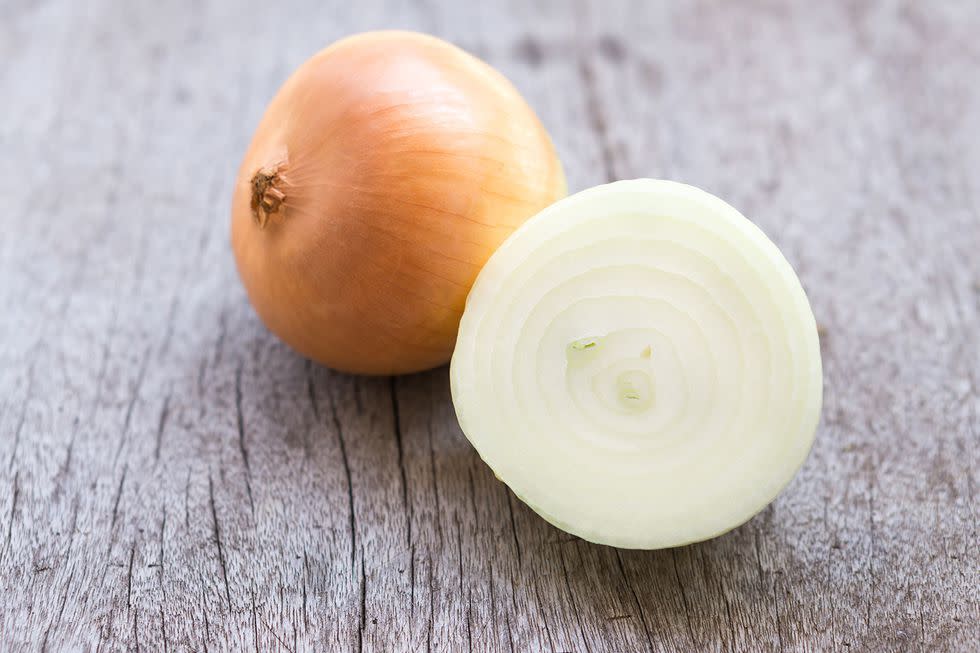
Garlic Bulbs
Whole garlic and unpeeled cloves are best kept in a cool, dry place, in part because temps below 40°F speed the growth of a green sprout from the garlic. Refrigeration causes it to become rubbery too.
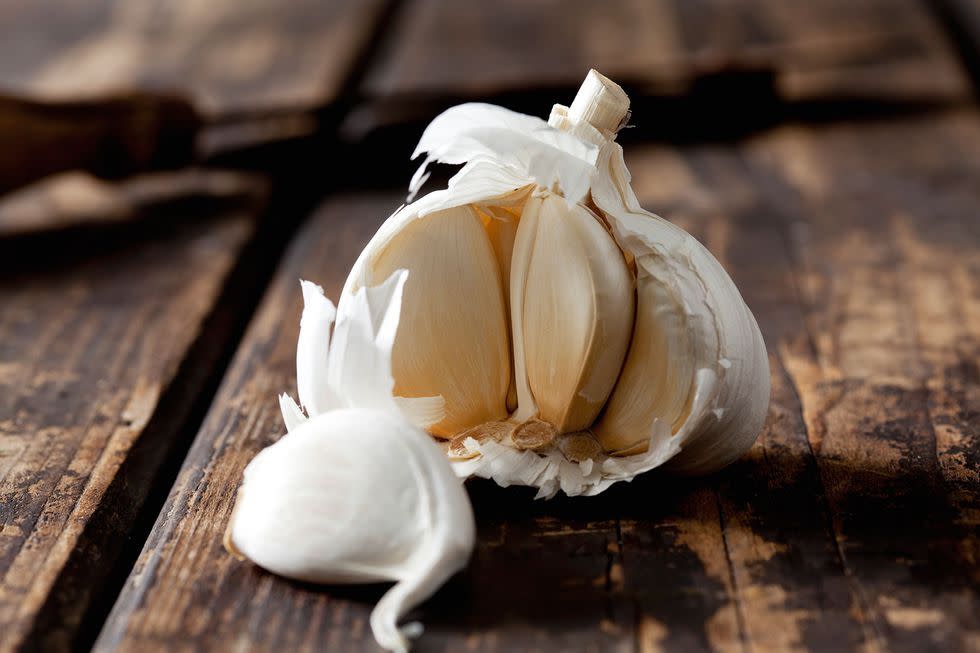
Potatoes
The added moisture from the fridge makes potatoes gritty and sweet. Store them in a ventilated container, such as a cardboard box or open paper bag, and out of direct light to prevent sprouting.
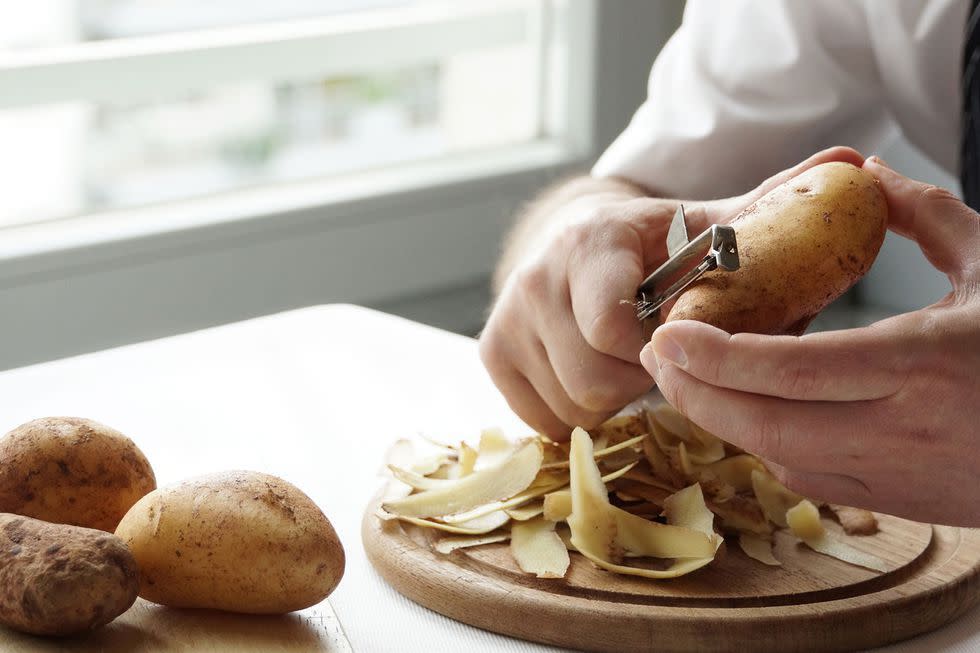
Tomatoes
Keep your whole tomatoes at room temperature to ensure optimal flavor and juiciness.
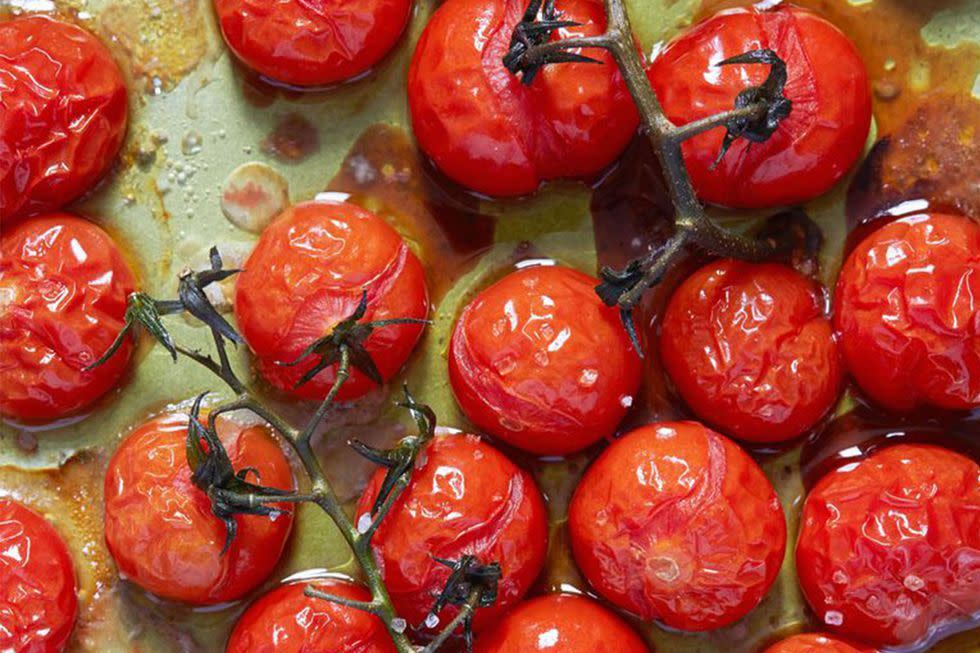
Unripe Bananas
Bananas need warmer temperatures to ripen, which means the fridge is definitely not the right place for them. With that said, you also don't want them too warm, so keep them out of direct sunlight.

Unripe Melons
Melons, including cantaloupe and honeydew, can be left out at room temperature so that they can ripen. Slices should be refrigerated, but you'll want to consume them within three to four days before they turn mushy and/or slimy.
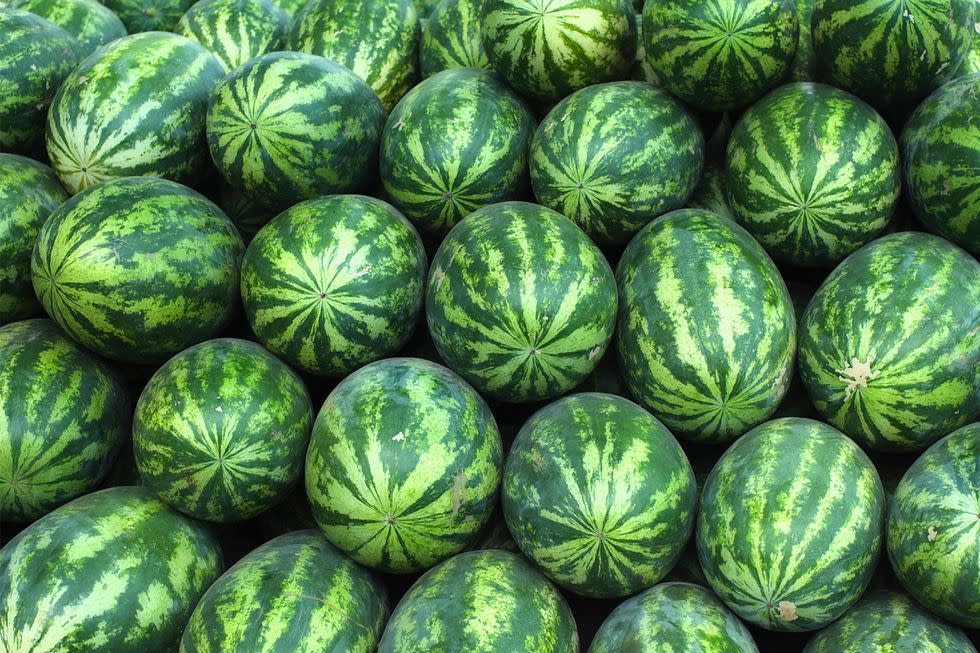
Olive Oil
Olive oil can form crystals and begin to turn solid if left in a refrigerator (which may also impact flavor). Your best bet is storing it in a pantry, away from light and oven heat.

Hot Sauce
The vinegar in hot sauce keeps it preserved for six months, per the USDA—only creamy condiments need to be refrigerated.
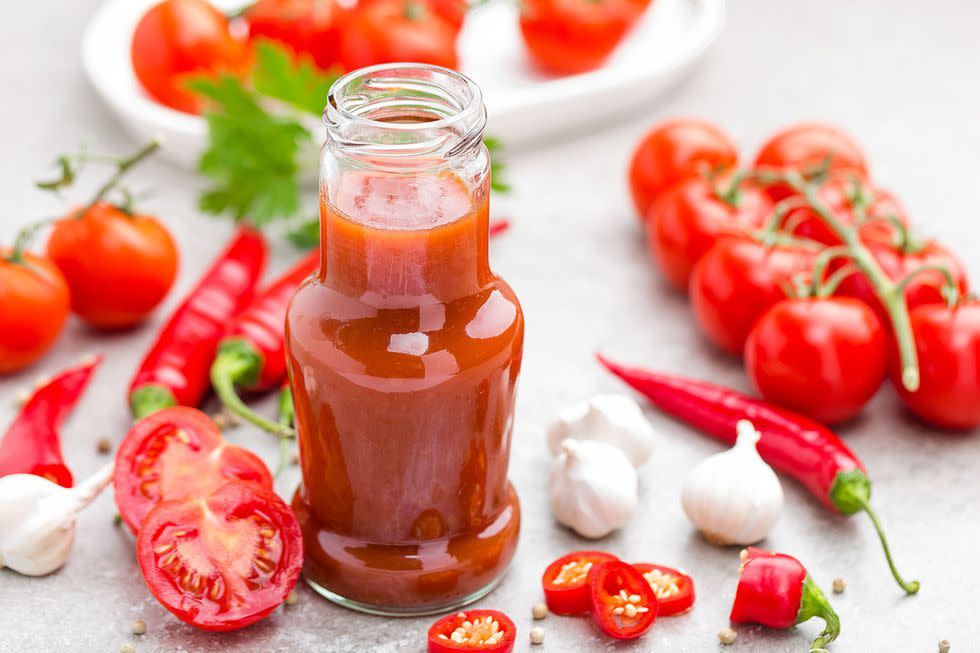
Ketchup
Surely, you've noticed that diners keep these bottles out all day? While you can pop the bottle into the fridge if you want to preserve quality for up to six months, it's safe to keep in your cupboard.

Soy Sauce
Thanks to fermentation, you're safe keeping commercial soy sauce in a cabinet—though refrigeration will extend the flavor freshness for longer, according to Kikkoman.
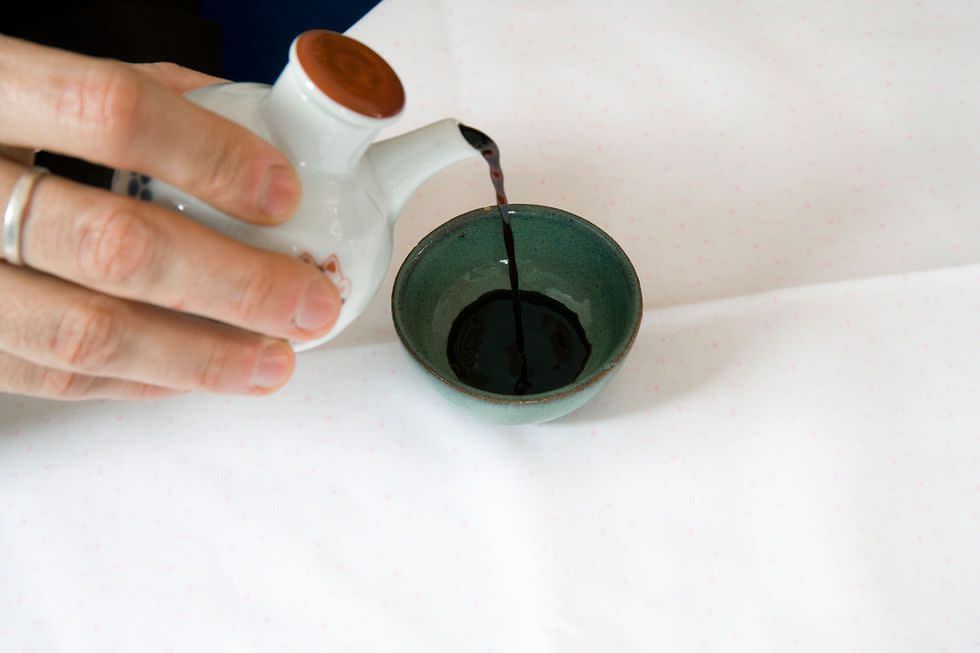
Butter
Yes, dairy should be kept in the fridge...but storing butter makes it harden and tough to spread. You can actually keep sticks of butter out for two days (in reasonable, not-super-hot temperatures) so it maintains an enjoyable consistency.

Honey
Honey that's stored in an airtight container won't turn on you, no matter where you keep it—though it tastes best when consumed within two years of opening, according to the FoodKeeper app.
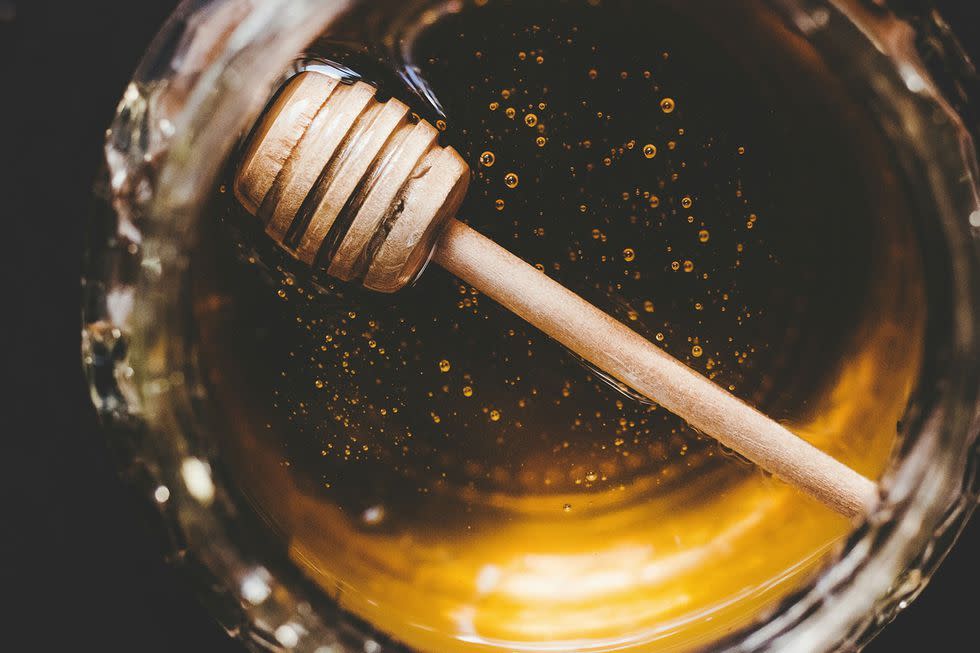
Peanut Butter
You've got three months to get through that jar of commercial peanut butter (a delicious challenge!) before you should store it in the fridge. Natural peanut butter without additives do go in the fridge to preserve best quality, though.
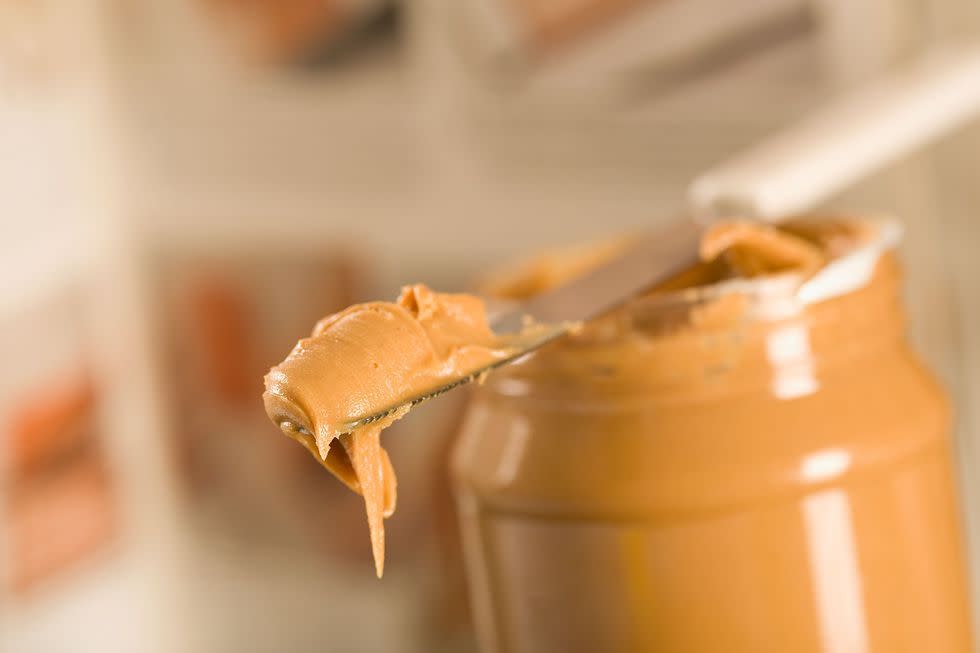
Nuts
This one is divisive. While the USDA maintains that jars and cans of unroasted nuts can be stored in the pantry for two to nine months after opening with no major freshness loss, other sites claim that keeping them cold prevents rancidity and extends freshness. Our suggestion? Don't buy in bulk, keep 'em airtight in the pantry, and eat them within a few months.
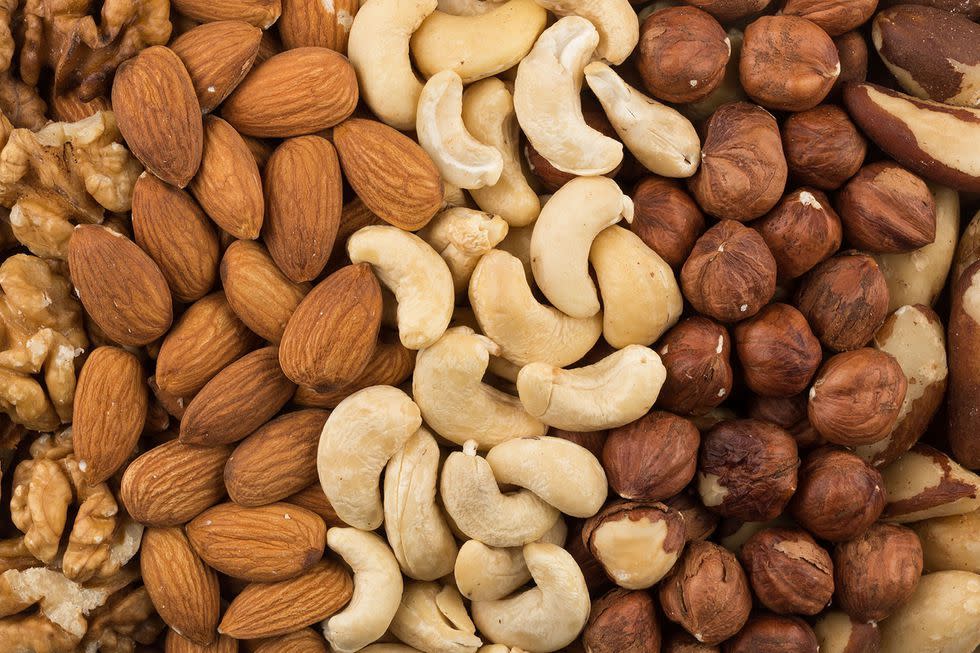
Pastries
Wait, do you really have leftover pastries?! If you're saving goodies such as muffins for later, it's best to keep them in a paper bag at room temperature.

Chocolate
Unless you're into dull flavor and grainy consistency, don't keep chocolate cold in your fridge. It tends to have maximum flavor at room temperature, and should be stored somewhere dark and dry.
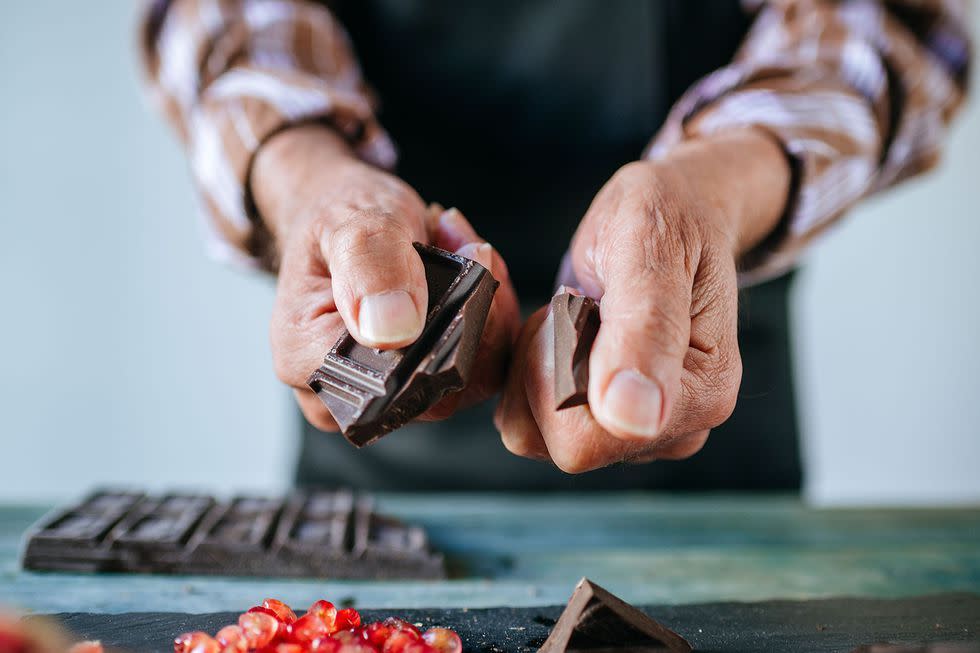
Coffee (Beans or Grounds)
Coffee belongs in an airtight container at room temperature if you're hoping to retain the flavor in your morning cup, per the National Coffee Association (NCA).
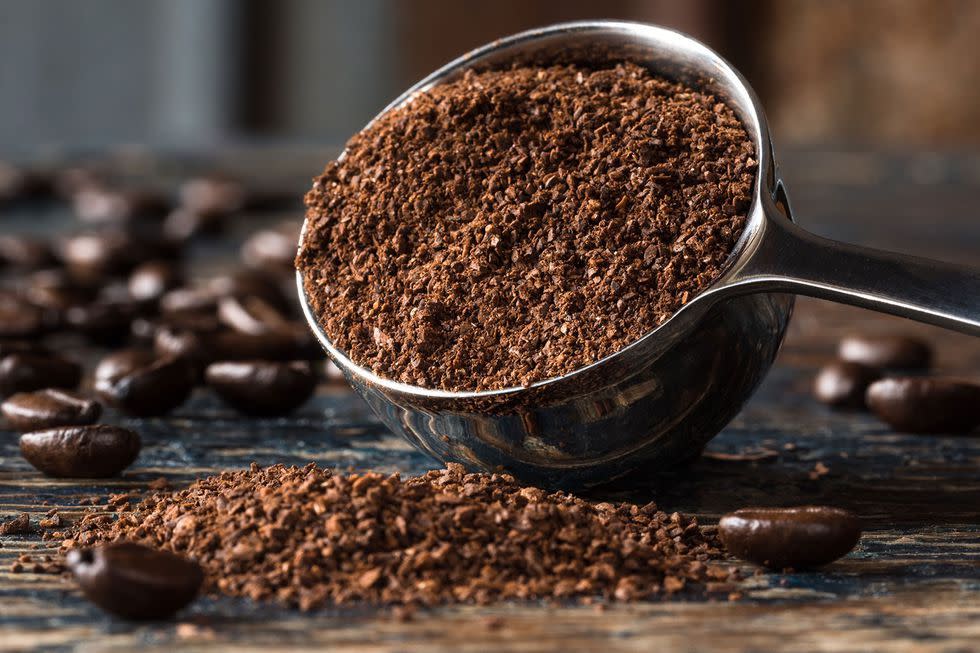
Apples
These will be fine on the counter for up to three weeks.
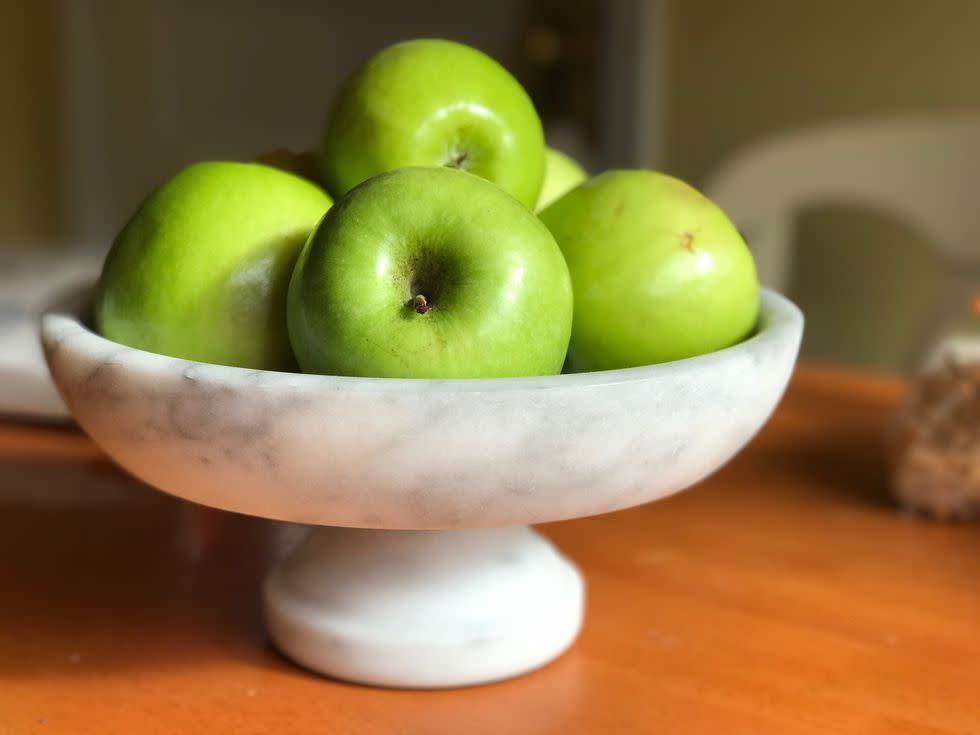
Aged Cheese
Aged cheese (rule of thumb: that's anything hard, like parmesan or gruyere) doesn't require refrigeration, according to the USDA. Store it in a cool, dark place.
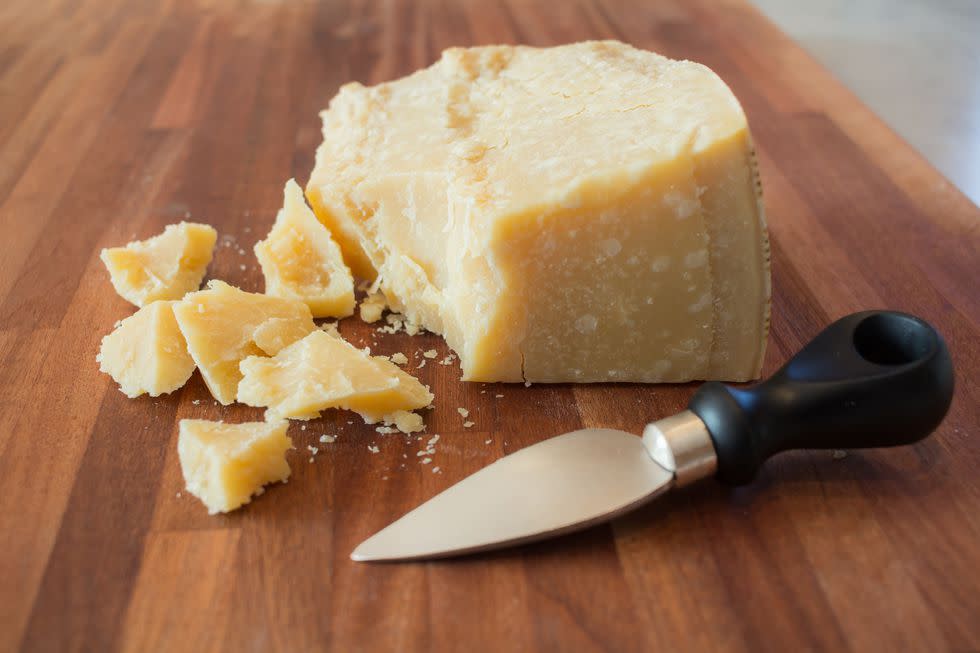
Canned Fish
You know how you pick this up from the unrefrigerated section at the market? That means it can stay unrefrigerated until you open it up.
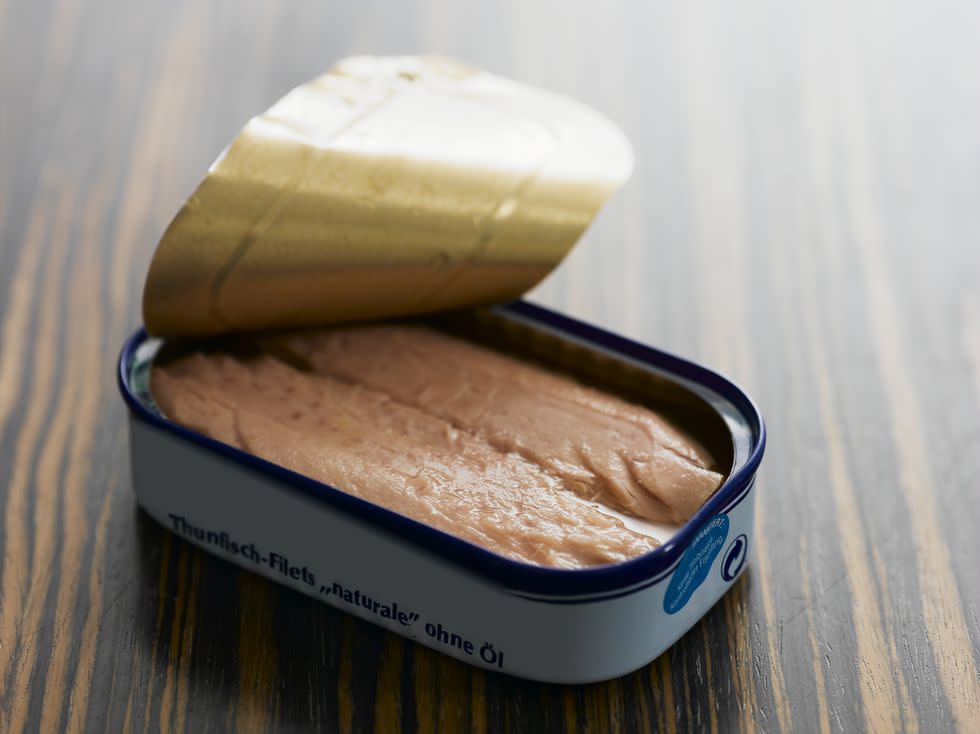
Molasses
This stuff's already nearly impossible to scoop. Store it in the fridge, and getting a spoonful will be like working out...really, really hard. It tastes great for 6 months after opening when kept in the pantry, according to the USDA.
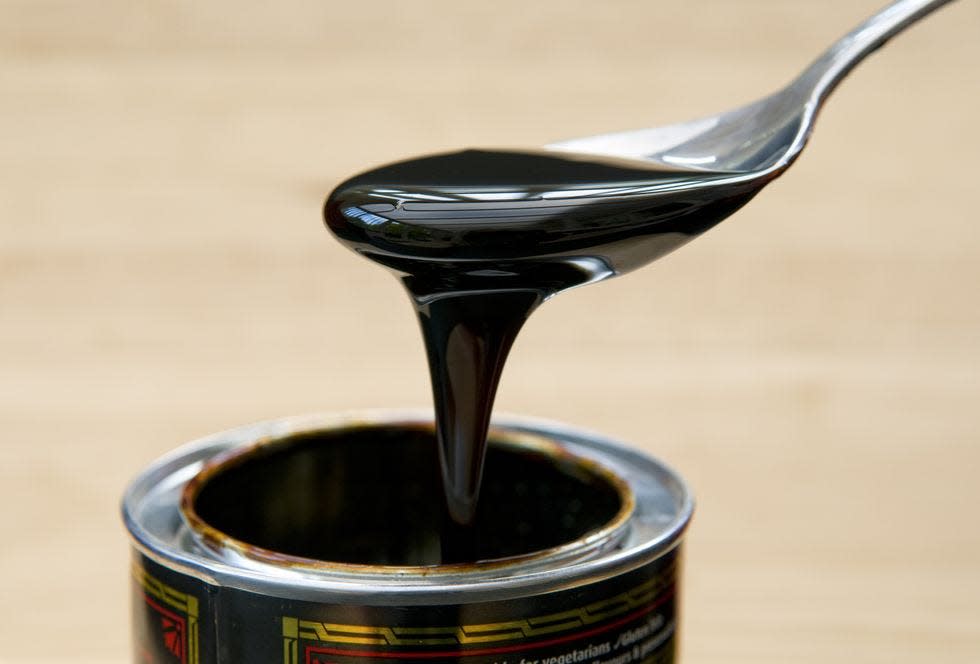
Eggplant
This delicious nightshade can lose flavor in the fridge, but it'll only last on your counter for a day or so. Just be sure to make eggplant parm (or whatever your favorite dish using the veggie is) soon after you buy.
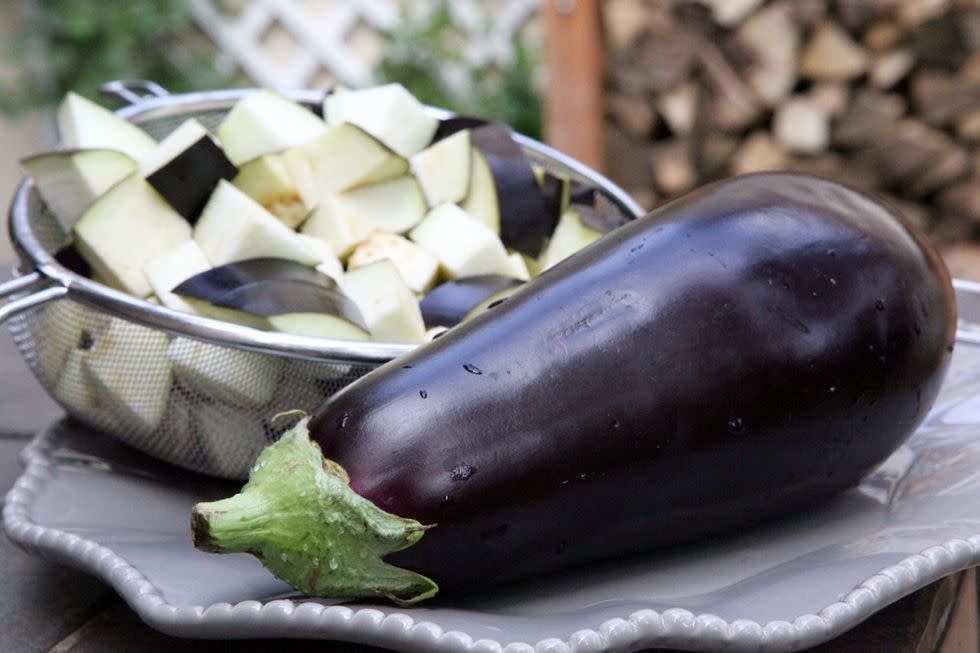
Nutella
Refrigerating your favorite chocolate-hazelnut spread just seizes up the chocolate, making for a less enjoyable—and less spreadable—experience.
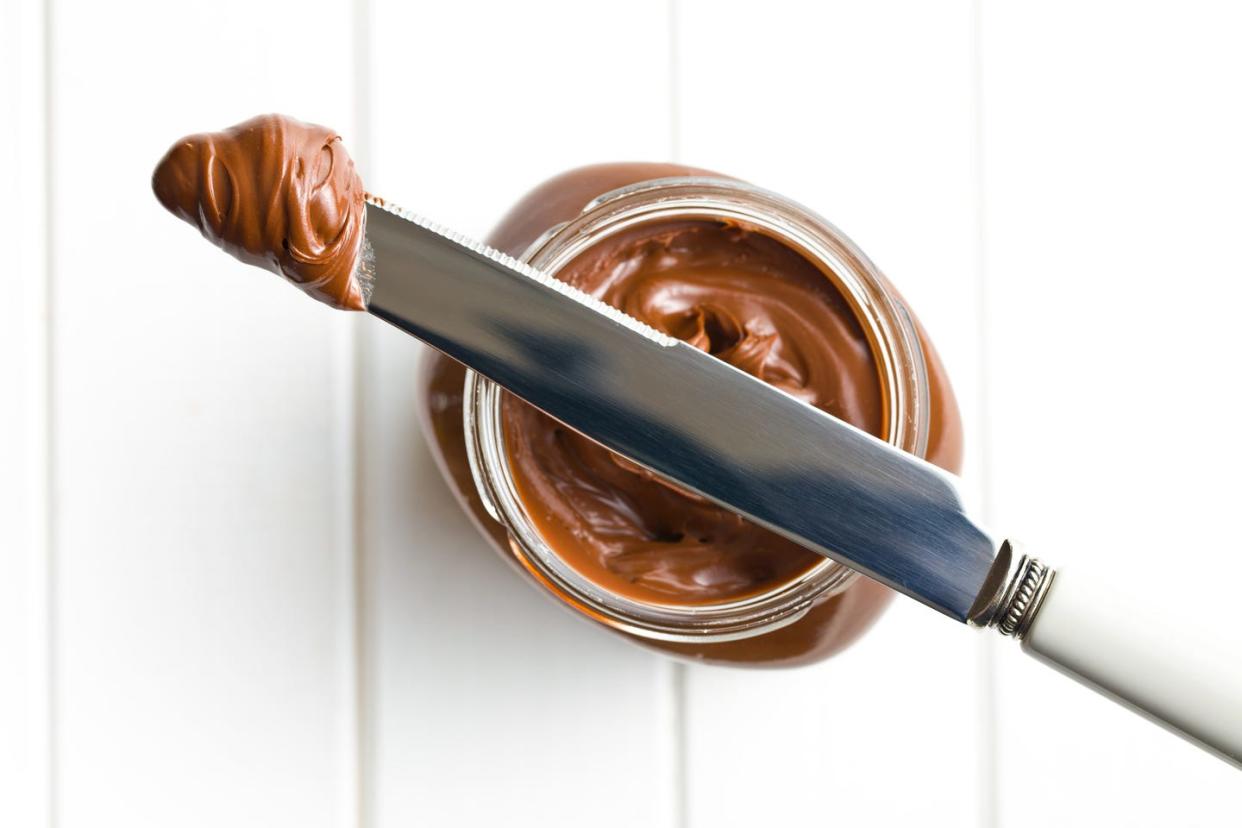
Unripe Stone Fruits
Peaches, nectarines, apricots, etc. should live on your countertop when you need them to ripen a bit. That said, once they're at your desired stage of ripeness, they can definitely stand to sit in your fridge.
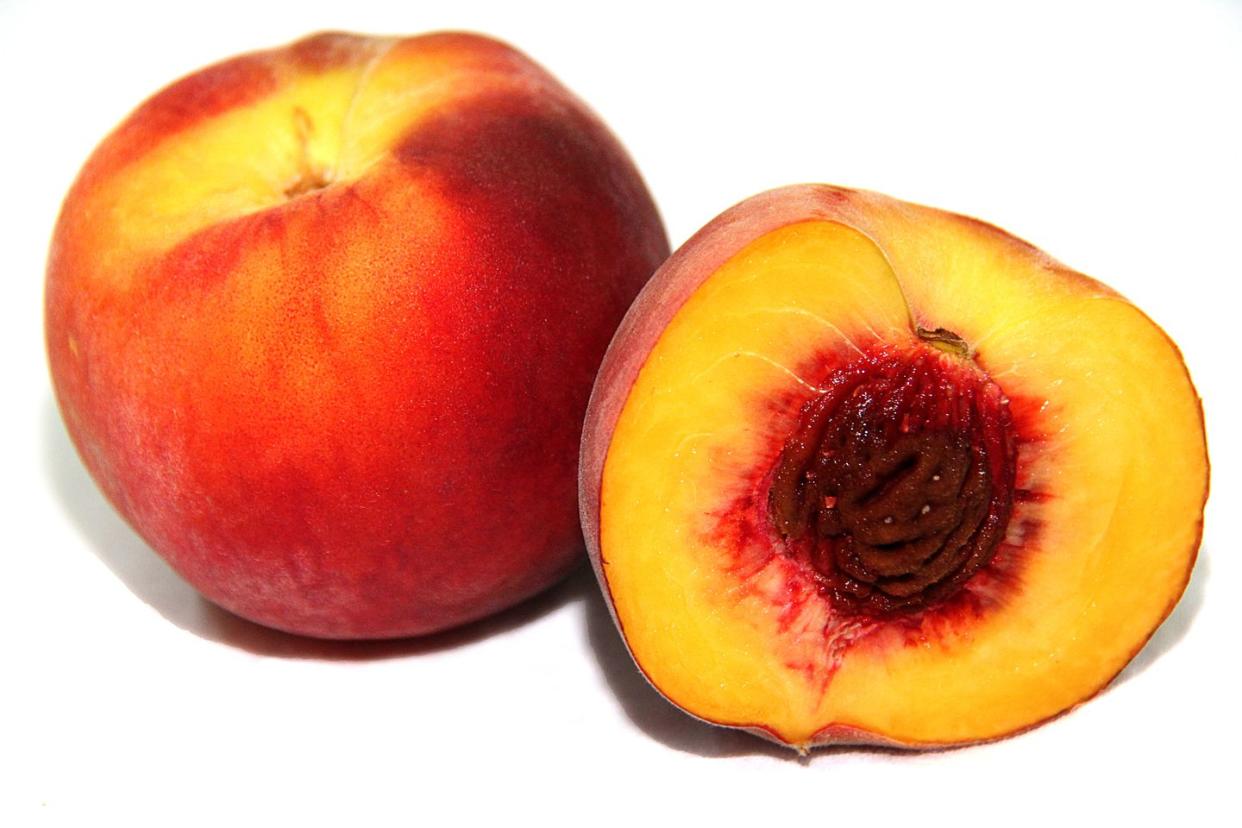
Fruit Pies
You've got about two days to leave your fruit-centric pies out of the fridge (as long as they are properly wrapped and/or covered). Any cream-based pie absolutely needs to be refrigerated, though.

Baked Cookies
We're giving you permission to go full Cookie Monster on your freshly baked batch, since fridge moisture makes them crumbly and affects flavor. Store them in a sealed container for up to three weeks (depending on variety) or freeze them.

You Might Also Like






